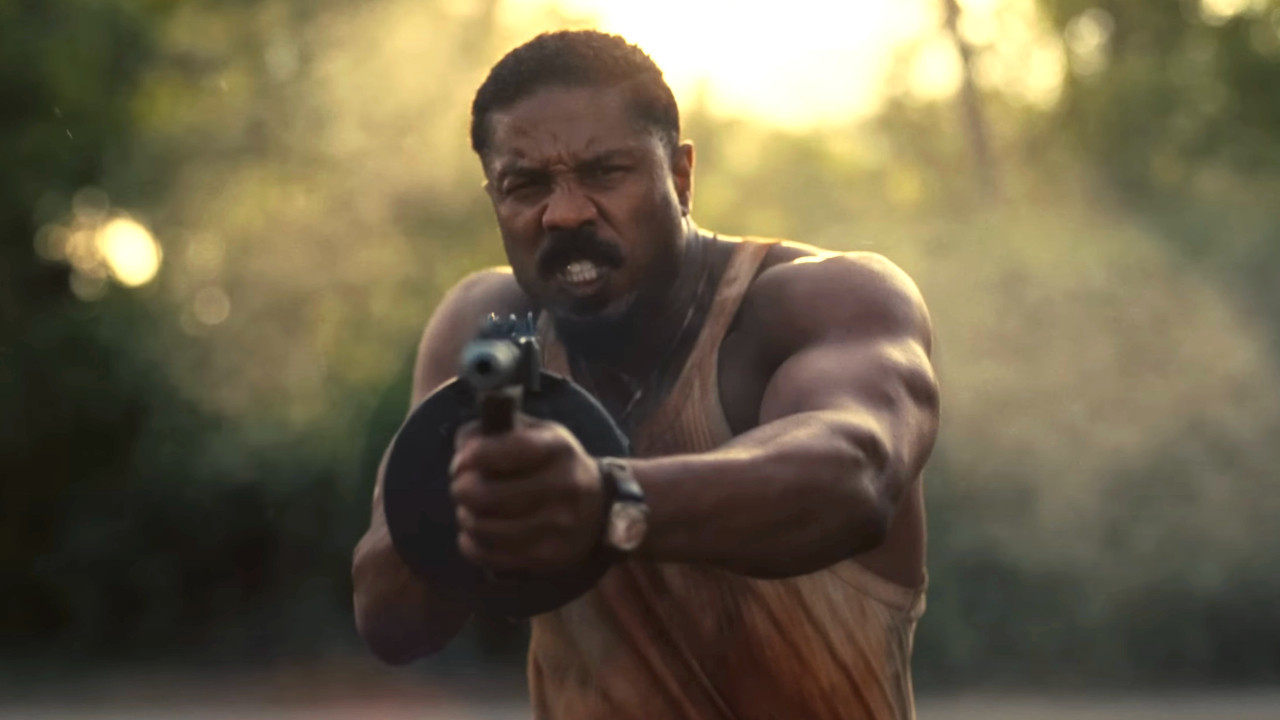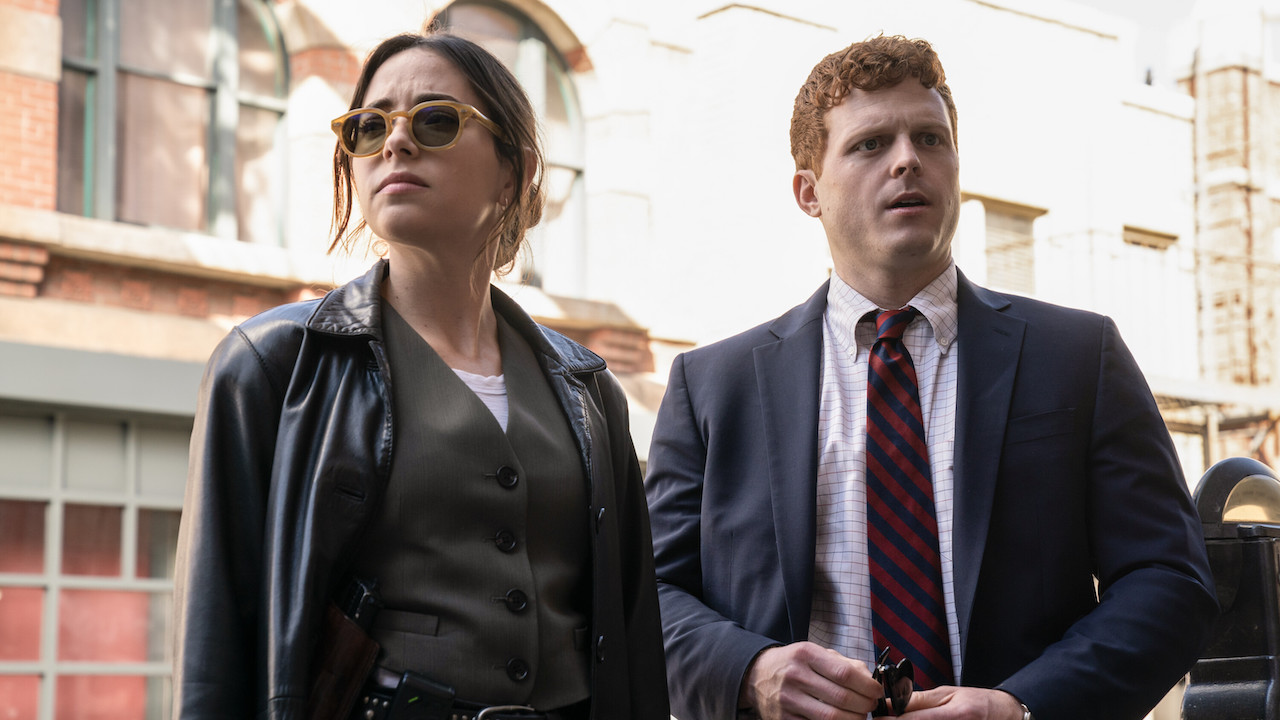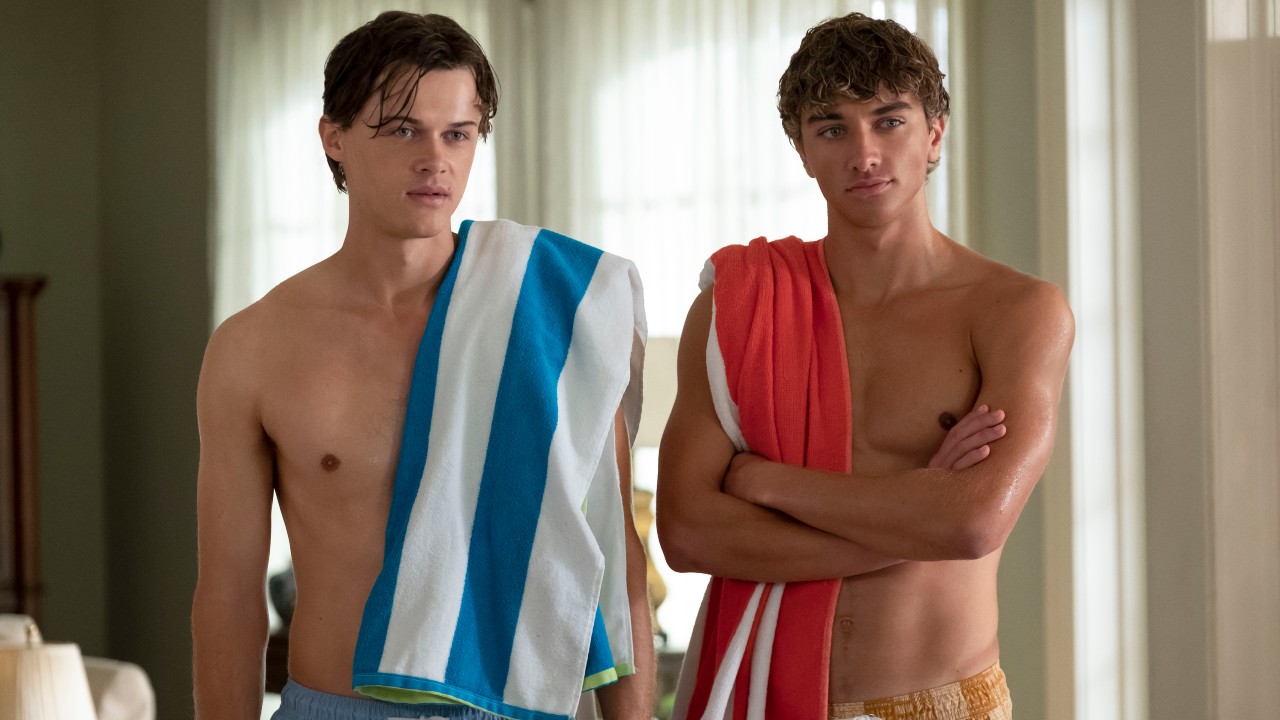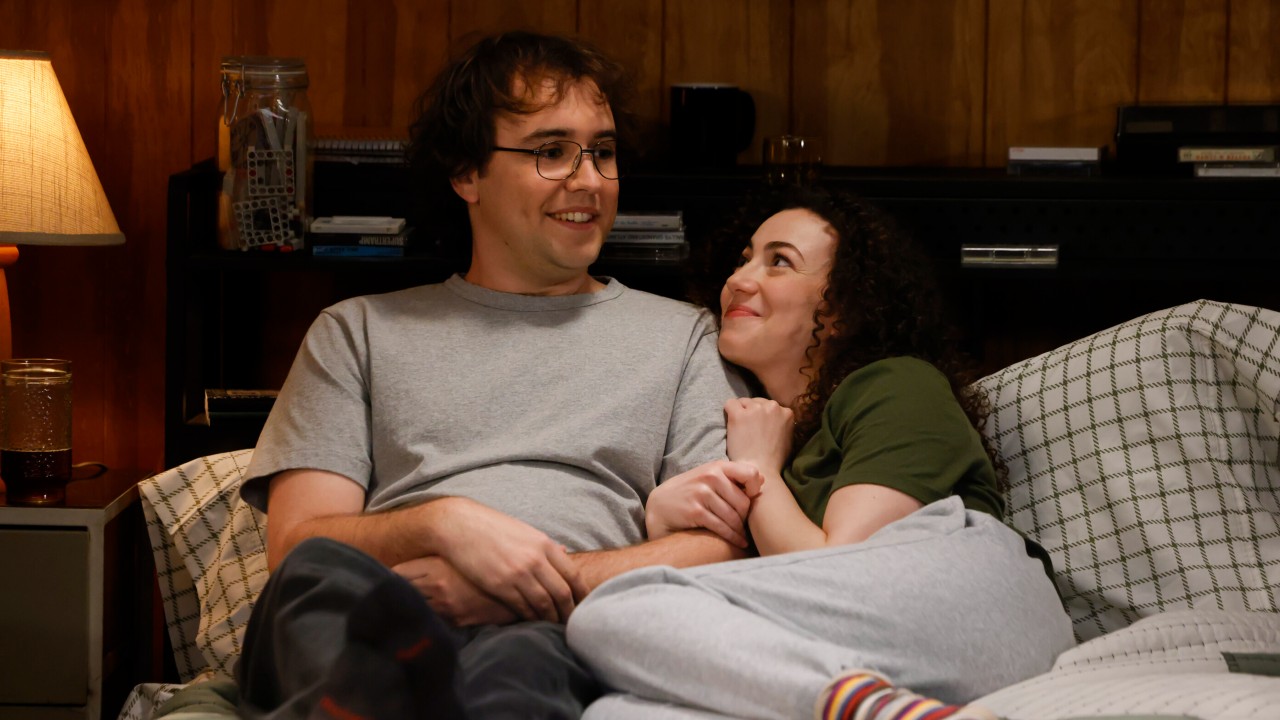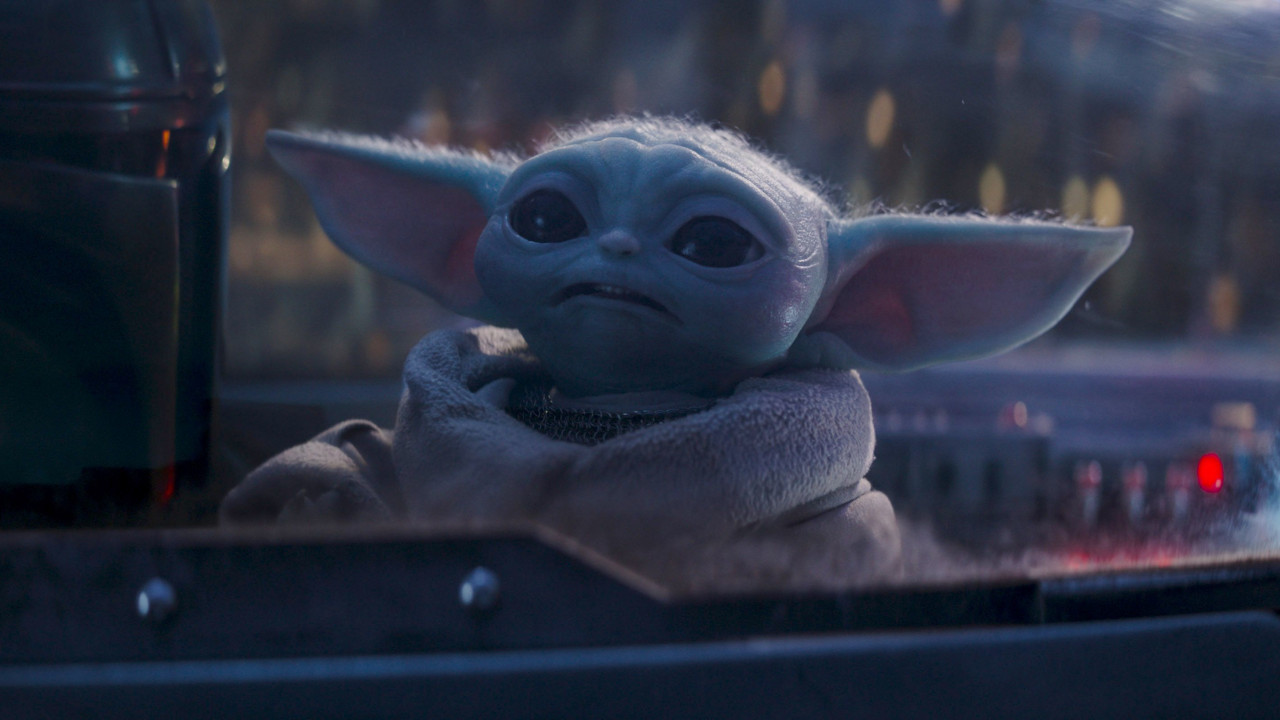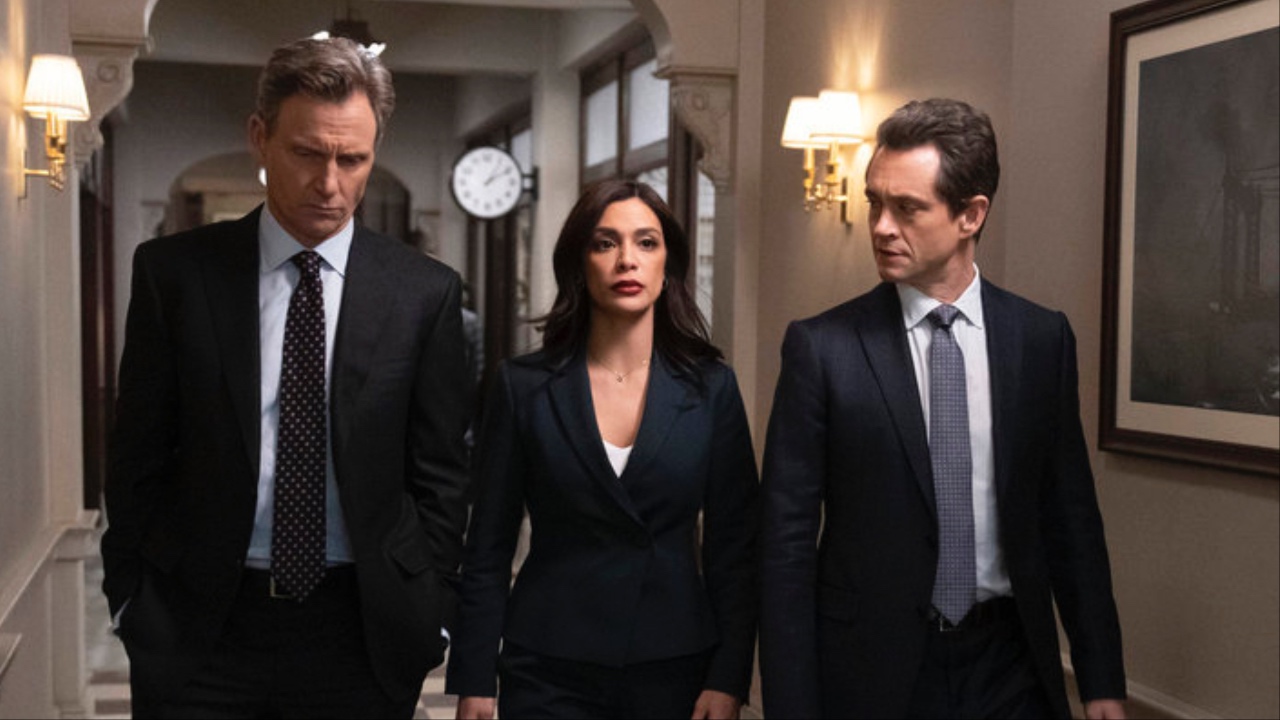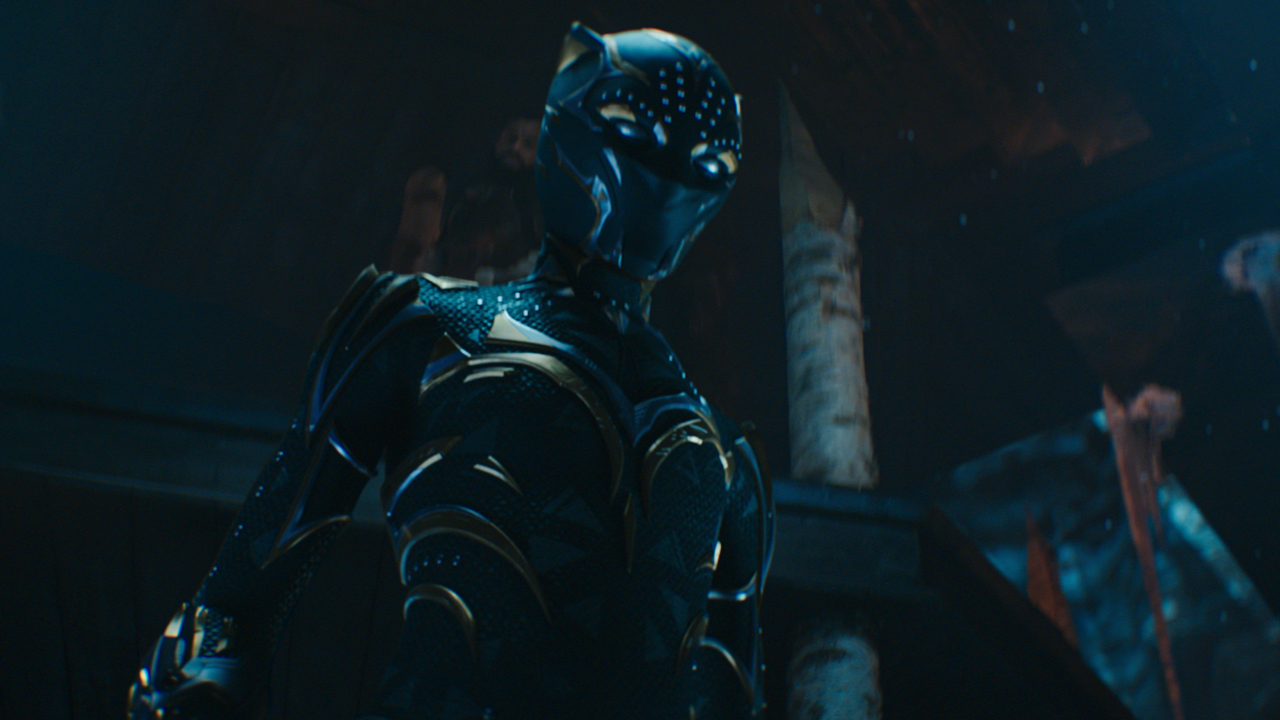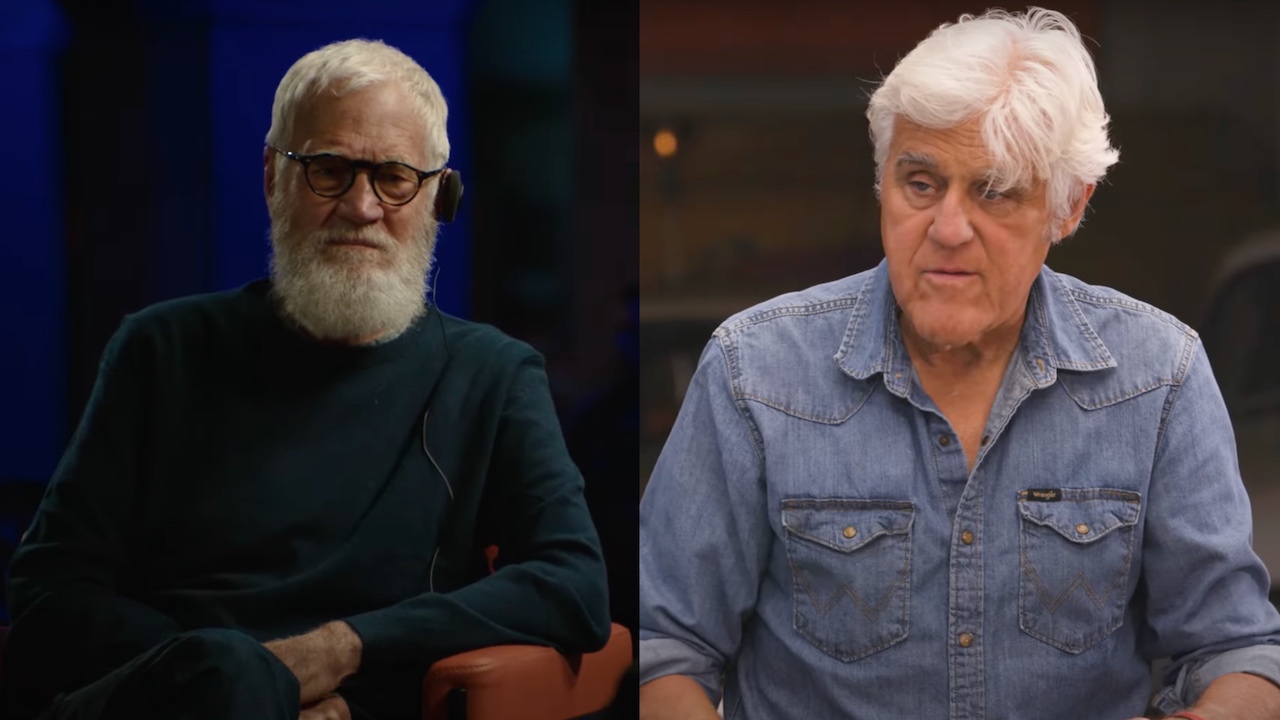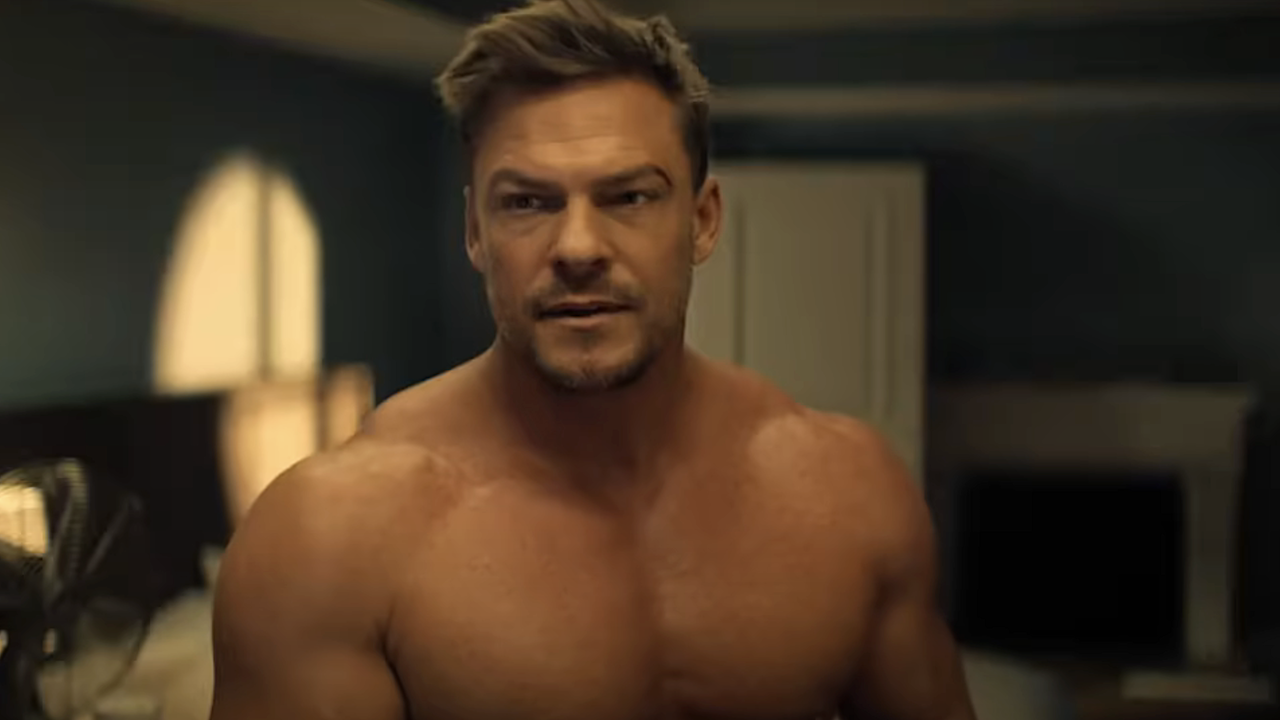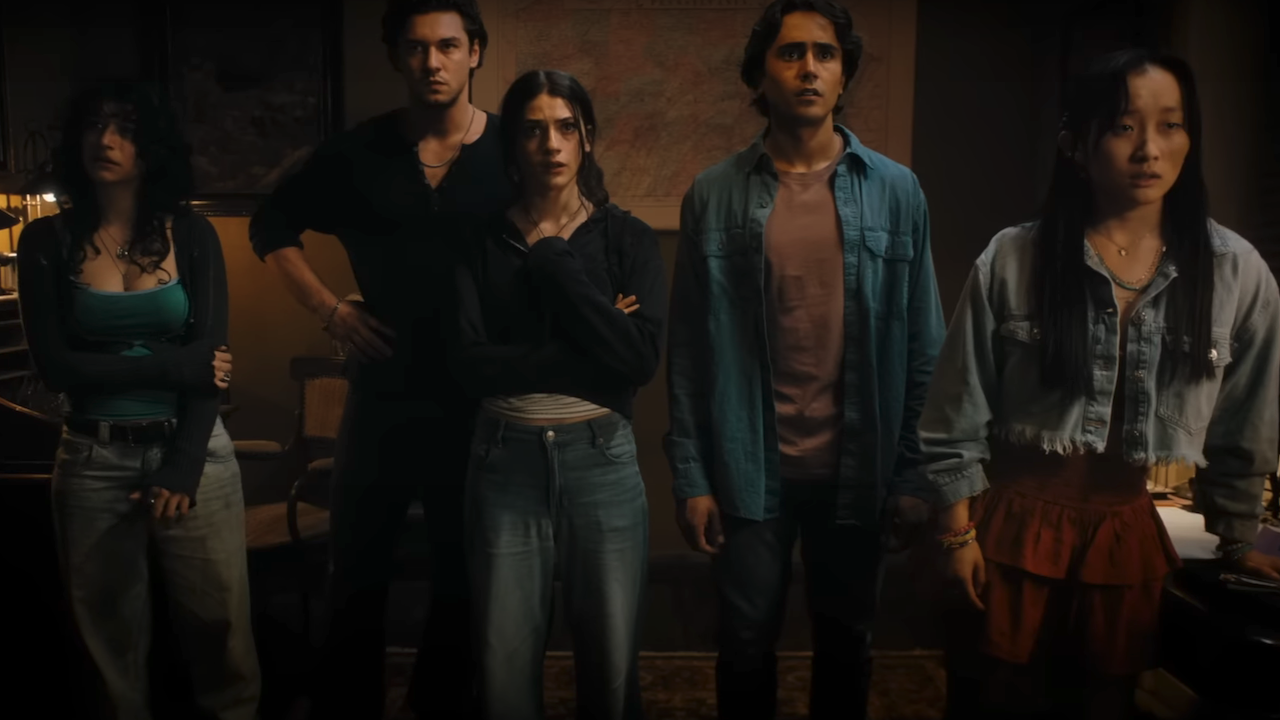Interview: Motherhood's Uma Thurman And Katherine Dieckmann
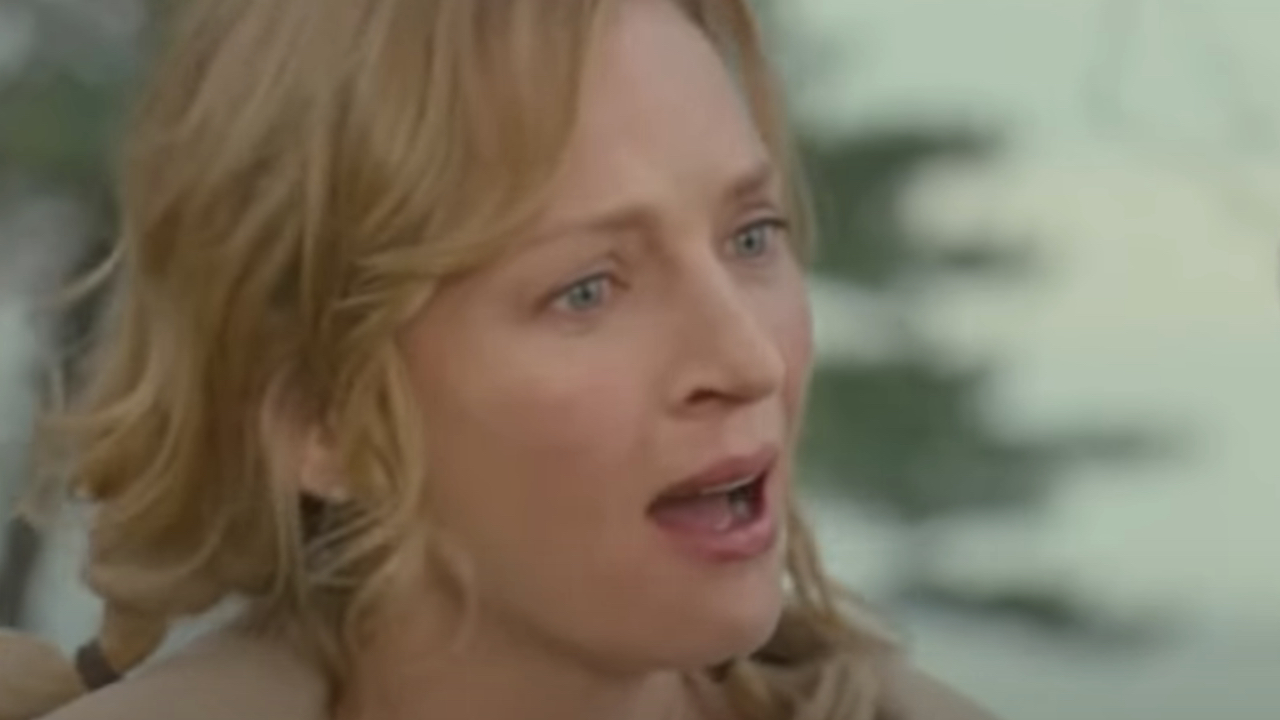
Imagine sitting around a conference table with about ten other people when Uma Thurman bursts into the room and pops a squat right next to you. Maybe it’s because I’m 5’4” and she’s about 6’, but something about her presence is overwhelming. She didn’t waste a moment of our time before diving into a barrage of Motherhood questions alongside writer-director Katherine Dieckmann.
When you’re talking to two mothers about a film called Motherhood, the majority of questions will hearken back to their own experiences as mothers. You can read all about that below, but it’s about what’s not in the interview that you’re probably most curious about.
My roundtable was packed with mom bloggers so I was one of few reporters who could have dropped the Kill Bill 3 bomb. There was no way Uma was getting out of the room without, at least, hearing the question. About three quarters of the way through the interview it was time. To my disappointment, I asked and she dodged. She barely let me get my question out before turning me down. Oh well, I guess I should have expected that. The Motherhood chat was nice, but since I got no Kill Bill talk, the highlight of the interview was definitely when Uma walked out of the room, turned back and shouted “Live long and prosper.” I could totally see Uma as a Vulcan in the next Star Trek movie.
If you were a blogger, what would you write about?
Thurman: What would I want to blog about? Gee, I don’t know! You know what? I never thought about it. I don’t know. I don’t know about blogging, I mean, I play the blogger but I saw it just as a frustrated writer just needing to find her own voice and what I loved about the movie I think is endemic in the blogging aspect which is that she’s writing about what she cares about. And I haven’t read a lot of blogs but if someone writes about what they care about I’m sure it’s interesting.
What’s your experience of motherhood been compared to Eliza’s?
Thurman: Well, that’s sort of a very large subject but what I, what I found – [Dieckmann enters] Hi! Talking about motherhood experience as you wrote it and as it is.
CINEMABLEND NEWSLETTER
Your Daily Blend of Entertainment News
Dieckmann: Cool!
Thurman: What I loved about the piece is its, I found it very honest and I found a lot of common threads that almost felt like an intimacy with what Katherine wrote. She just sort of, with a great deal of humor and sort of bitter sweet beauty just kind of described something that I felt I had largely shared. The details are different.
Was there any crossover between yourself and Eliza?
Thurman: There’s lots of crossover. We have a family mantra, you know, ‘Why do it right when you can do it yourself?’ So, you know, parenting is a very intimate and amazing experience and one of the best experiences of my life.
Eliza’s family is very conventional but yours is not. Your children have stepbrothers on the way and a half sibling; does that make parenting more difficult?
Thurman: I don’t know cause I can’t judge anyone else’s experience. I think this story is, shows you exactly how an intelligent and real person is struggling within what you just described as like, you know, the perfect setup, two parents two kids. Like, you know, she’s having an incredibly hard time and searching for the purpose of, you know, of her efforts and losing touch with it and then refinding it. You know, I can’t comment about anyone else’s life, I’ve just handled my own circumstances as best I can. You know? It’s all I know. I don’t know it any other way.
What’s been the biggest challenge you’ve face being a mother?
Thurman: Sleep deprivation is a known torture; I think, one of the one George Bush signed off on. It is a part in parcel of having a child, you know, it starts when your pregnant. I never ever slept again after my first pregnancy. Never. I was a champion sleeper as a young person. I could like, I could wake up, go back to sleep, wake up, do it again, stay in bed a long time. It was almost like an Olympic sport for me.
There’s a scene in the movie where Eliza is frustrated by the inconvenience of having a movie filmed on her block. You actually filmed this movie in New York City, so did you find any real New Yorkers aggravated with the production?
Dieckmann: Of course, of course! Well, we shot on my block.
Thurman: Poor Katherine.
Dieckmann: Which I wouldn’t really advise doing that to anybody. But, you know, I’m very literal minded so that’s what I knew and it – my building does look out on my kids’ school and those things, those geographic things are true and I like it when movies have actually real geography. But, I was lucky in that I’d given money for years to my block association, like since like 1989.
Thurman: You are so lucky!
Dieckmann: So the head of the block association sort of went around and told the neighbors and said ‘Look, she’s one of us’ and that didn’t stop people from being pissy but in general there was like a lot of good will.
Nothing thrown out the window?
Thurman: Literally pissy! [Laughs]
Dieckmann: Nothing of a urine-like nature landed on any of us.
Do you have any horror stories of a similar nature yourself being a New Yorker?
Thurman: I like seeing movies being shot. I mean, I don’t know, I’m always kind of bouncing around and I always look enviously at those trucks on the street and I think ‘Who’s getting to make a movie here at home? Why can’t I be inside that truck more often?’ Cause it’s the greatest, you know, and it’s so nice to get to do what you love to do and, you know, the down side of acting is the travel. The up side of travel life is travel often too but it’s hard to do it all.
Have you found motherhood as more of a stopping block in terms of your career?
Thurman: Motherhood definitely took the focus off of my work. And I didn’t mind. I had a few panics when I thought that if I wanted to work I couldn’t get a job anymore and then I would get one once in a while and it would make me feel better. So, you know, it’s something – I love what I do though, I really do and I think that for my wellbeing I need to be reminded of, that I have other purposes and it’s just stabilizing in an almost indescribable way. It’s kind of, you know, your work is like you man, I think in modern life. You know what I mean? Like in the old days when, you know, people pined for the husband. Your work is your, it’s sort of your, it’s your love. You know? In a way.
Dieckmann: It’s stability.
Thurman: It’s stability and it’s grounding and you know, whatever healthy or unhealthy places you’re brain can go, work is grounding and helps.
The movie takes place in one day. Have either of you ever had that one monumental day where you realized what motherhood means to you. You know, just that ‘ah-ha’ moment.
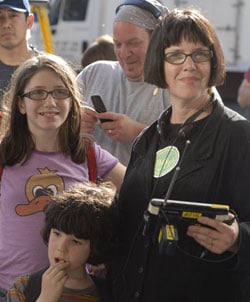
Thurman: That ‘ah-ha’ moment. There’s so many. I don’t know, somebody once said to me something I found helpful which is that parenting is not a sprint, it’s a marathon. And you know, that kind of – and I thought that was so helpful. You know, because you feel so awful about something going wrong, you know? Or something you wish you could have done better and it’s like – you feel like, I don’t know. I guess I put a lot of pressure on myself. I feel like I’ve ruined everything, you know? And life is long and all of your unnoticed good efforts also add up to something. Not just your sort of – I don’t know. How would you say it Katherine?
Dieckmann: Say what? Say -
Thurman: Say what? What am I saying; because I don’t know!
Dieckmann: No, but I think – I’ll guess what I think you’re saying, which is that there’s no, there’s no singular stopping point where you kind of go ‘Oh, okay, I get it.’ You know?
Thurman: Yeah.
Dieckmann: You’re kind of in it for this long haul and, like Uma says, I think most mothers are very self-critical and constantly wondering if they’re incurring damage that’s going to result in years of therapy even though they’re trying not to. But you also can’t get around that and no matter how much you do that you feel is right you’re going to do things that are wrong and kind of coming to a point of accepting that and then trying to enjoy this kind of wonderful but difficult process of your children growing up and away from you which is a lot of what the movie’s about.
Eliza has two apartments in the film so she has somewhere to get away from the commotion and write a little. Do you have a place like that?
Thurman: No! I have nowhere to go. [Laughs]
You’re a very private person and writing a blog is a very public thing. How did you interact with that?
Thurman: Well, I personally didn’t write the blog. So for me I had no interaction. It’s a performance. Katherine wrote it.
Dieckmann: I’ve never written a blog. I just made it up. I completely made the whole thing up. I did.
What about Twitter, would you ever use that?
Thurman: I don’t know. Look, let’s never say never but, you know, I’d like to run the marathon too but I don’t know if it’s going to happen. Who knows!
Staff Writer for CinemaBlend.
NCIS: Origins' Showrunner Revealed 'The Real Highlight' Of Learning Season 2 Was Happening, And I Discovered They Pulled Off An Amazing Achievement In The Process
I Talked To The Wedding Banquet Director About My Favorite Scene, And Turns Out Youn Yuh-Jung Actually Had A Key Note That Made It Better

